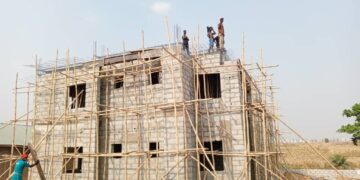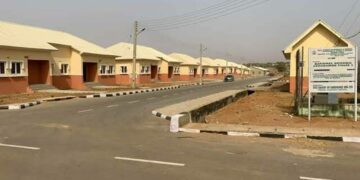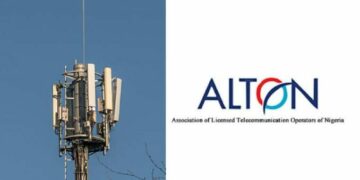The federal government has reiterated its commitment to repositioning Nigeria’s micro, small, and medium enterprises (MSMEs) as the bedrock of economic transformation.
Vice President Kashim Shettima disclosed this at the 6th Annual Lecture of the Development Bank of Nigeria (DBN) held in Abuja on Thursday. The vice president, who was represented by the Special Adviser to the President on Economic Affairs (office of the VP), Dr Tope Fasua, said MSMEs remained central to the administration’s Renewed Hope Agenda.
He noted that, beyond policy reforms, institutions such as DBN were critical in ensuring entrepreneurs across Nigeria have access to the right tools to thrive.
“MSMEs are not peripheral actors; they are the lifeblood of our economy, accounting for over 80 per cent of employment and making a significant contribution to GDP. As the government provides policy clarity and enabling infrastructure, institutions like DBN are key partners in translating vision into action,” Shettima said.
The Vice President outlined President Tinubu’s reform agenda, including fuel subsidy removal, foreign exchange unification, infrastructure renewal, human capital investment and global engagement, adding that these measures were designed to stimulate enterprise, attract investment and expand opportunities for small businesses.
In his welcome address, DBN Managing Director/CEO, Dr Tony Okpanachi, said the Bank had disbursed over ₦1.1 trillion to MSMEs through 79 participating financial institutions, reaching more than 700,000 businesses nationwide by December 2024.
Okpanachi noted that DBN was more than a financier, describing it as “a convener of ideas, a builder of capacity, and a partner in national transformation.”
Also, the Director-General of the Small and Medium Enterprises Development Agency of Nigeria (SMEDAN), Charles Odii, disclosed new policies to strengthen the global competitiveness of Nigerian SMEs. He highlighted four strategic thrusts: regulatory reforms to ease export access, provision of shared infrastructure such as garment hubs, financial and non-financial support for expansion, and innovative logistics partnerships with firms such as God Is Good Logistics and Lifeworks.
“These are the small but significant steps we are taking to ensure our SMEs are not only visible globally but also competitive,” he said, noting that Nigeria’s recent “Best Pavilion” award at the International Africa Trade Fair underscored the need to sustain momentum.
The keynote speaker at the event, Kenyan entrepreneur Flora Mutahi, urged African businesses to embrace scaling as a deliberate strategy to address youth unemployment across the continent. She warned that while ten to twelve million youths enter the job market annually, only three to four million formal jobs are created.
Stakeholders at the lecture, including policymakers, entrepreneurs, and development financiers, agreed that Nigeria’s economy’s destiny is tied to the success of its small businesses.





